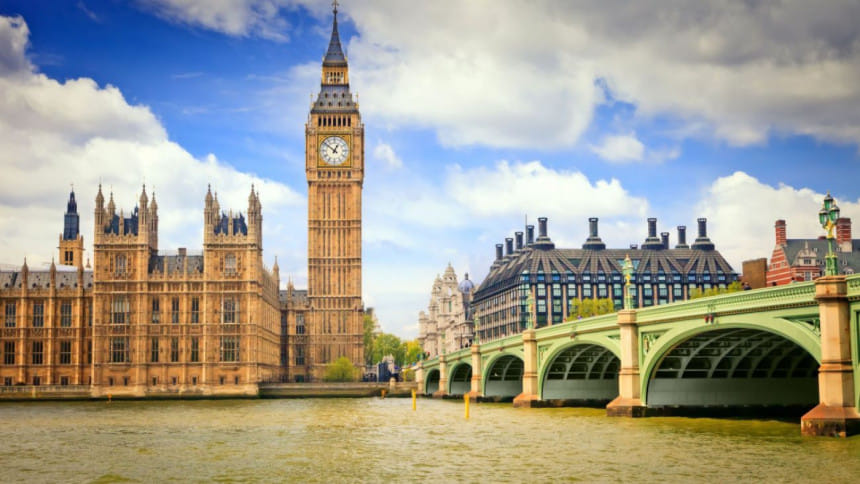Westminster model and its democratic dilemmas

Apart from its contribution to civilisation in the form of the English language, the great civic legacy of the Anglo-Saxon tradition, emanating from the British Isles is said to be its political system. Received wisdom has it that the Westminster model of democracy, as this has been termed, is perhaps the most ideal set of norms enabling the fruition of the best qualities of human life and existence. Increasingly, however, in contemporary times, the veracity of this extrapolation is being questioned, even in the land of its birth. As the United Kingdom grapples with the issue of its planned disentanglement from Europe, otherwise known as "Brexit", the deficiencies of the system are coming to the fore. Can the current Parliament take a decision that would impact the lives of all Britons for all times and call it a righteous act? Would that be a reflection of democracy, which the English elite in the nineteenth century, with their limitless admiration for ancient Athens, fashioned their political institutions to resemble? As this is being played out, how are countries, like those in South Asia, who, largely erroneously, claim to follow the Westminster model, react? These are questions to which this essay will attempt to respond.
So, what is the British Constitution that gave birth to the Westminster model? The truth about such a Constitution as such is that it does not exist. At least not in a codified form. It is an amalgam of mores drawn from several diverse and distinct sources: first, historical documents such as the Magna Carta that King John signed with the opposing feudal lords in 1125, and which is the base-stone of the political architecture though now considerably altered, particularly in 1828; two, Statutes or body of laws passed by the legislature; three, Common Law which are customs and traditions of ages recognised by Courts as well as its judgments; four, Parliamentary Conventions, adopted by the sovereign legislature , whose decisions are all of equal status and can never be unconstitutional as "the law of the land knows not the word or the idea"; five ,"Rule of Law" which asserts that "a person can do anything , unless the law says otherwise"; and finally, but importantly, works of authority by astute minds in society whose legal interpretations are cited as sources of Constitutional Law.
One such person was Walter Bagehot, who deserves particular mention. For it was he who crafted the first ever significant tome on the subject of the "The English Constitution". Bagehot argued that the critical element in the system was the "fusion" between the "dignified" (monarchy), and the "efficient" parts (Parliament), with the former "exciting and preserving the reverence of the population", and the latter, actually, "working and ruling". He saw an important role for the monarch (comparable to what might be the roles of Presidents in South Asia?) which involved "the right to be consulted, the right to encourage and a right to warn". However as the norms developed in South Asia, this important role was eroded. Also absent in South Asia was the "mystique and pageantry" that surround the titular Head of State in the Westminster system, that to Bagehot, complemented the mundane act of ruling by government, rendering the latter more effective.
Codified Constitutions, where they exist, as in the United States, enjoy a supremacy because they function as compacts defining the federal design between the component States and the federal authority. The principle of separation of powers, propounded by philosophers like Charles de Montesquieu, is a priority to contain the excessive power of the executive. It is not always understood by many that separation of power is also sought to be followed in unitary situations as in Britain, where institutions like the independent judiciary, apolitical armed forces and civil service, the Bank of England and the House of Lords also exercise the restraining power on the elected executive. Each has a space of operation recognised in the unwritten Constitution, even though it is not formally codified. That is because in the most ideal of situations, a first-past-the-post voting system with single-member constituencies will mathematically produce elected governments with minority popular support. This challenges the theory that election victories are reason for absolute power, which is why Lord Hailsham described the British system as an "elective dictatorship". Of course the beauty of the uncodified Constitution is that whenever democratic deficiencies are identified, course corrections can be easily undertaken. It may be difficult for mature democracies to sustain without this kind of separation of powers, in one form or another.
In British India, the 1935 Act was an interesting attempt to impose the Westminster model in as codified a form as practicable. All Constitutions adopted by currently independent South Asian States thereafter are heavily influenced by it. In Sri Lanka (then Ceylon) the drafting of the original Constitution in the early 1950s was assisted by Sir Ivor Jennings, a British expert. The current imbroglio in that country suggests that it did not quite work. His Ceylonese experience allowed Jennings the wherewithal for a mature assessment about the rest of South Asia, particularly India. On that country he made an interesting observation in 1952. To him the Indian Constitution was "far too large and therefore too rigid", too caged by its history, and too unwieldy to be moulded into something useful through judicious interpretations. His conclusion was that the Indian Constitution would not endure. But it did, or at least has, so far. That is because—and to the credit of—Indian leaders, whether globalised like Jawaharlal Nehru, or more homespun like Narendra Modi, have devised methodologies, largely in response to perceptions of public opinions, to create in whatever amorphous manner, a system with a stable equilibrium, hovering between a Union and a Federation.
There is need to bear in mind, in all mature political milieu, or in any that aims at maturity, which includes Bangladesh, that rigidity in conforming to "a priori" constructs like codification of State principles effected in another age and time, in response to issues of that period, is not necessarily the best path to stability for the present or the future. Flexibility could better provide the resilience for systemic survivability. The institutions within the State structure ought to have their constitutionally endorsed space to interact with one another, providing the community governance in consonance with public aspirations. The latter, the voice of the people, should be the most sacrosanct constituent element in any democratic system, and indeed must be, if the system is to sustain. History is replete with examples of societies which have failed to act accordingly, and as a consequence, have come to grief.
Dr Iftekhar Ahmed Chowdhury is Principal Research Fellow at the Institute of South Asian Studies, National University of Singapore, and a former Foreign Advisor in a Caretaker Government in Bangladesh.

 For all latest news, follow The Daily Star's Google News channel.
For all latest news, follow The Daily Star's Google News channel. 



Comments